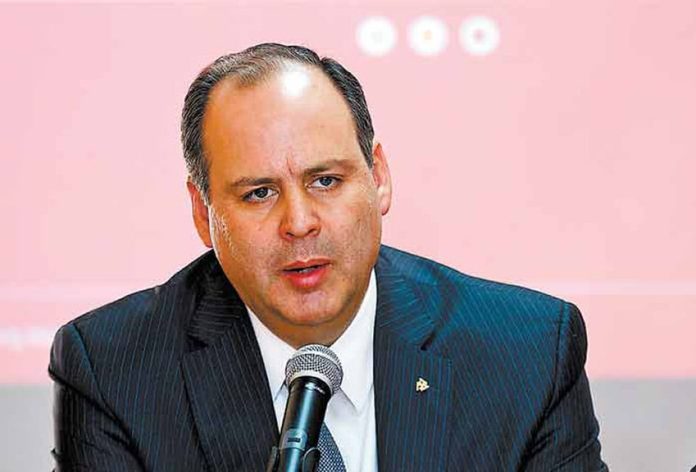The main challenge for Mexico’s next government is to preserve economic stability during the transition period and in its first days in office, a prominent business leader said yesterday.
Gustavo de Hoyos Walther, president of the Mexican Employers Federation (Coparmex), made the assertion after saying that anything could happen in the post-election period “even though it seems to us that there are conditions for an orderly and stable transition.”
Interviewed after the presentation of a security and justice blueprint prepared by the non-governmental organization México SOS, the business leader said that if the next administration makes bad decisions or doesn’t carefully choose its path towards the changes it wants to make, there could be devastating consequences.
“Bad signs [from the incoming government] could set us back on what we’ve made progress on over [a period of] years, that’s why we call on all the candidates to act responsibly. It’s understandable that any government will adopt public policies in line with its partisan inspiration but the changes have to be planned gradually so as not to upset the markets and so that they don’t create instability,” de Hoyos said.
He added that despite the difficult and uncertain situation that the country is currently experiencing, foreign investment has recently increased.
“I have information that in the past weeks there have been very significant capital flows into Mexico; that’s a very good sign. In the past two or three months, it is estimated that US $6 billion has come in and we hope that [foreign investment] can get even stronger,” de Hoyos said.
Global macro-economist Komal Sri-Kumar goes even further than de Hoyos by saying that the outcome of the election Sunday could have global market implications.
In an opinion piece published today by Bloomberg, the analyst wrote that “Mexico’s history of turbulence during presidential transitions as well as the peso’s standing as one of the most-traded emerging-market currencies should put investors on notice.”
Sri-Kumar cited Mexico’s 1982 debt crisis and capital flight during the transition period following the 1994 election that ended with a massive devaluation of the peso as examples of the “turbulence.”
The likelihood of Andrés Manuel López Obrador becoming Mexico’s next president and winning a congressional majority heightens the risk posed by this year’s election, Sri-Kumar said, because it would represent the first time in Mexico’s modern history that a “populist candidate” has been elected.
He described the candidate widely known as AMLO as being “far from the political mainstream” and highlighted clashes he has had with private-sector executives who oppose his election, some of whom López Obrador dubbed a “greedy minority.”
However, during the campaign period, AMLO has attempted to shed any perceptions that he is anti-business and earlier this month the powerful Mexican Business Council (CMN) said it will work with whoever wins the presidential election.
But Sri-Kumar said “the risk for investors comes from the uncertainty over whether AMLO truly wishes to work with businesses to boost private sector investment” or whether he “has merely softened his edges in recent weeks in order to get elected.”
Fluctuation in the value of the peso next week will likely reveal the initial market reaction to whoever wins Sunday, the economist said, adding that concerns about a López Obrador presidency had prompted capital outflows over the past year which along with other factors such as NAFTA uncertainty had contributed to a weakening of the currency.
The president of California-based Sri-Kumar Global Strategies said there are three developments that investors should monitor in order to decide if Mexico’s next government will be favorable to the country’s financial markets.
First, if López Obrador wins and then seeks to reconcile and cooperate with private sector groups such as the CMN, Sri-Kumar said, the peso could be expected to gain in value.
However, if the leftist political veteran wins and then suggests limiting private investment in the energy sector — as he has previously proposed — that would be a “major negative,” Sri-Kumar wrote.
Second, if AMLO moves to wind back energy reforms, foreign direct investment flows would be adversely affected, the analyst said, which would “remove an important underpinning for investors to achieve attractive returns on their portfolio investments.”
Third, Sri-Kumar charged that investors will judge Mexico’s next government according to how willing it is to find common ground with the United States on issues such as NAFTA.
The economist said that López Obrador is expected to be a tougher negotiator with the United States government on the trilateral trade deal, which is still shrouded in uncertainty, but added that “a decision by Mexico to simply walk away . . . would be negative for both Mexican and U.S. equities.
